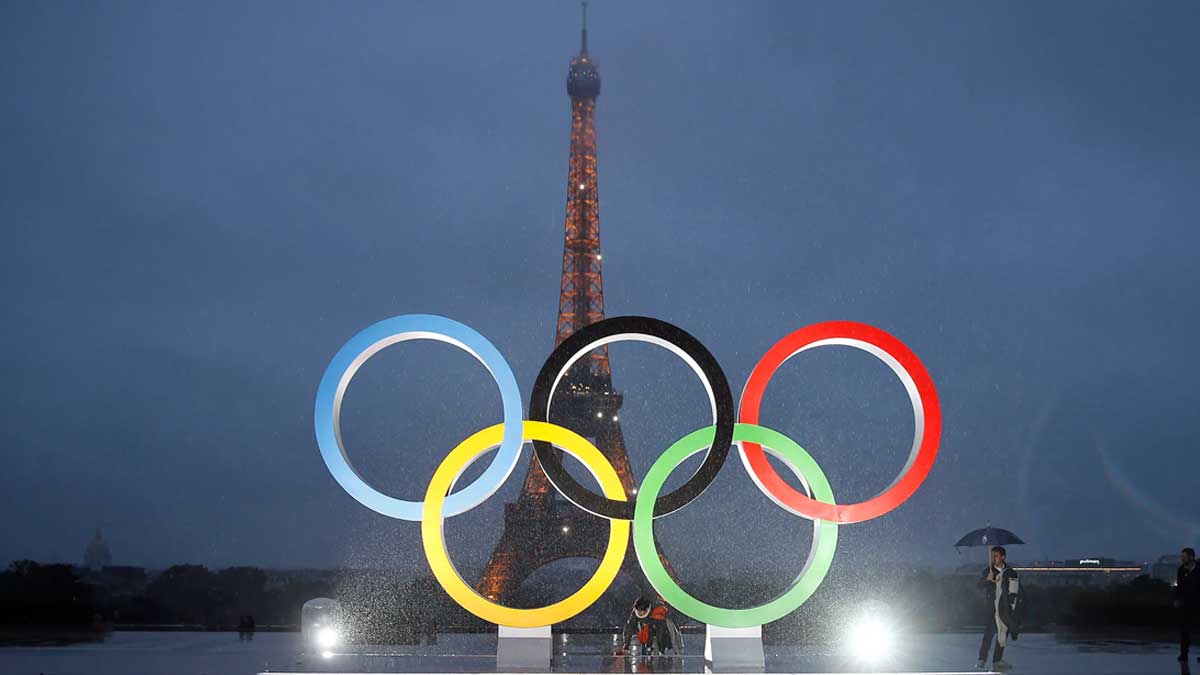- Home
- Billionaires
- Investing Newsletters
- 193CC 1000
- Article Layout 2
- Article Layout 3
- Article Layout 4
- Article Layout 5
- Article Layout 6
- Article Layout 7
- Article Layout 8
- Article Layout 9
- Article Layout 10
- Article Layout 11
- Article Layout 12
- Article Layout 13
- Article Layout 14
- Article Sidebar
- Post Format
- pages
- Archive Layouts
- Post Gallery
- Post Video Background
- Post Review
- Sponsored Post
- Leadership
- Business
- Money
- Small Business
- Innovation
- Shop
Recent Posts
Why Russia Remains Banned from the Paris Olympics

Despite a decision last year by the International Olympic Committee (IOC) to allow Russian and Belarusian athletes to compete in the upcoming Paris Olympics under a neutral flag, controversy persists. The IOC had declared that athletes from these countries could participate as long as they did not represent their nations or any affiliated organizations. This move was part of a broader initiative to uphold the unifying spirit of the Olympic Movement. However, the decision has faced significant backlash and calls for boycotts from several nations due to Russia’s ongoing invasion of Ukraine.
In January 2023, the IOC announced that athletes from Russia and Belarus would be eligible for the Paris Olympics, provided they did not compete under their national flags or affiliated organizations. The IOC added that any athlete publicly supporting Russia’s invasion of Ukraine would be barred from participating. The decision aimed to uphold the Olympic ideals of unity and inclusion while condemning the conflict. Despite this, the announcement sparked a wave of criticism and demands for a boycott from various countries.
Six months later, the IOC imposed a ban on Russia and Belarus from the Paris Olympics. This move followed similar bans by governing bodies in tennis, cycling, and football, and was intended to safeguard the “security and integrity” of the Games. For Russian or Belarusian athletes to compete, they must first seek approval from the relevant sports governing bodies and then from an IOC review panel. This panel will assess whether the athletes have expressed support for the invasion or have affiliations with sports clubs linked to Russia’s military.
Athletes who are granted permission will compete as “Individual Neutral Athletes” under the AIN (Athletes Independent Neutral) flag, which incorporates the colors of the French flag on their uniforms. In the event of a gold medal win, the national anthem will be replaced by music commissioned by the IOC.
The IOC’s stance follows Russia’s invasion of Ukraine in February 2022, which it condemned as a violation of the Olympic Truce—a UN-backed resolution that prohibits warfare during and one week after the Games. Prior to the ban, Russia had been notably successful in the Olympics, securing 71 medals at the 2021 Tokyo Games. Following the invasion, various sports organizations imposed their own bans on Russian and Belarusian athletes. Wimbledon and the Union Cycliste Internationale are among those who enacted similar prohibitions. While some organizations, like the U.S. Open, argued against punishing individual athletes for their governments’ actions, Russia faced sanctions in five Games following a state-sponsored doping scandal at the 2014 Sochi Olympics. These sanctions required Russian athletes to compete under the ROC (Russian Olympic Committee) flag and were set to expire in December 2022, though the World Anti-Doping Agency declared Russia still “noncompliant” last year.
In March, the IOC announced that Russian and Belarusian athletes invited to compete in Paris would be prohibited from participating in the Olympics’ opening ceremony.
As of July 20, 17 Russian athletes accepted invitations to compete under a neutral flag, while 20 declined. Russia, competing under the ROC flag, won two out of eight gold medals in taekwondo at the 2021 Tokyo Olympics. No Russian athletes were approved for taekwondo this year. Nine Russian athletes initially accepted invitations for wrestling events but later withdrew. Among Belarusian athletes, 17 accepted invitations, while seven declined, including former top-ranked tennis player Victoria Azarenka. Azarenka, who moved to the U.S. from Belarus, faced backlash after a match against Ukrainian player Elina Svitolina at Wimbledon last year. Svitolina had refused to shake hands with players from Russia or Belarus, a stance Azarenka said she “respected.”
Ukrainian President Volodymyr Zelensky was a vocal critic of the IOC’s decision. He expressed to French President Emmanuel Macron that Russian and Belarusian athletes “should have no place at the Olympic Games in Paris.” Zelensky also criticized IOC President Thomas Bach, arguing that neutrality is unacceptable when peaceful foundations are being undermined. Paris Mayor Anne Hidalgo had suggested that athletes from these countries should be banned as long as Russia remained at war with Ukraine. Representatives from 34 countries, including the U.S., Canada, and host nation France, expressed disagreement with the IOC’s decision, with Latvia, Lithuania, Poland, and Denmark threatening to boycott the Games in protest.
The United Nations Human Rights Council has supported the inclusion of Russian and Belarusian athletes, stating in a letter cited by the IOC that “Anyone has the right not to be discriminated on the basis of their passport.”
Recent Posts
Categories
- 193cc Digital Assets2
- 5G1
- Aerospace & Defense46
- AI37
- Arts3
- Banking & Insurance11
- Big Data3
- Billionaires449
- Boats & Planes1
- Business328
- Careers13
- Cars & Bikes76
- CEO Network1
- CFO Network17
- CHRO Network1
- CIO Network1
- Cloud10
- CMO Network18
- Commercial Real Estate7
- Consultant1
- Consumer Tech180
- CxO1
- Cybersecurity68
- Dining1
- Diversity, Equity & Inclusion4
- Education7
- Energy8
- Enterprise Tech29
- Events11
- Fintech1
- Food & Drink2
- Franchises1
- Freelance1
- Future Of Work2
- Games141
- GIG1
- Healthcare78
- Hollywood & Entertainment186
- Houses1
- Innovation42
- Investing2
- Investing Newsletters4
- Leadership65
- Lifestyle11
- Manufacturing1
- Markets20
- Media193
- Mobile phone1
- Money13
- Personal Finance2
- Policy567
- Real Estate1
- Research6
- Retail1
- Retirement1
- Small Business1
- SportsMoney33
- Style & Beauty1
- Success Income1
- Taxes2
- Travel10
- Uncategorized8
- Vices1
- Watches & Jewelry2
- world's billionaires418
Related Articles
Trump Moves $4B Stake in Truth Social Parent, Stock Drops 6%
Donald Trump recently transferred his 57% stake in Trump Media & Technology...
By 193cc Agency CouncilDecember 20, 2024House Rejects Trump-Backed Funding Bill, Shutdown Looms
The U.S. House of Representatives rejected a new government funding bill on...
By 193cc Agency CouncilDecember 20, 2024Trump Named Time’s Person of the Year for Second Time
On Thursday, Time magazine honored Donald Trump as its “Person of the...
By 193cc Agency CouncilDecember 12, 2024Meta Donates $1 Million to Trump’s Inaugural Fund
Meta, the parent company of Facebook and Instagram, has confirmed a $1...
By 193cc Agency CouncilDecember 12, 2024















Leave a comment